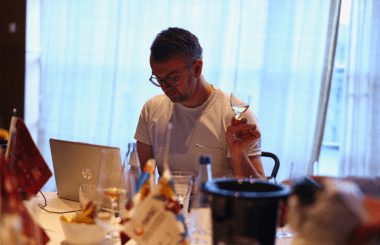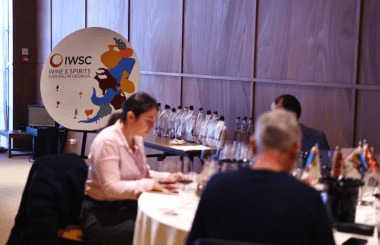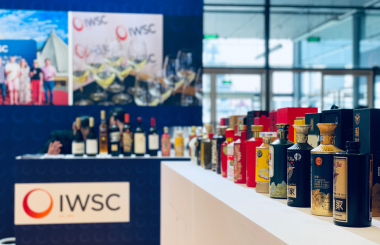New research commissioned by Wine Paris & Vinexpo Paris into inter-generational wine consumption highlights a stark shift in consumer behaviour. Cat Lomax, Independent Drinks & Drinks Retail Consultant, shares some insight into the trends we should expect to see in the coming years...
Introduction
‘Mind the gap’: iconic catchphrase of the London Underground, without question. But a call to arms for the UK wine trade? New research commissioned by Wine Paris & Vinexpo Paris into inter-generational wine consumption would certainly suggest so: with just 26% of regular wine drinkers aged between 18 and 39 (Gen Z and Millennials) versus 48% aged 55+ (Boomers), the UK wine market is facing a significant generational ‘gap’ in consumer numbers that could present an existential threat to the category itself. The research, carried out by Wine Intelligence suggests the long-term trend only darkens this picture – in 2010, 36% of regular wine drinkers were aged 18 – 39. Over the past decade, then, wine has become significantly less relevant to the youngest consumer groups. So, what exactly is behind this shift in consumer behaviour, are there any silver linings and, ultimately, how must the trade respond to ensure wine remains a powerhouse drinks category in years to come?
Wine must fight harder to win share of spend
The key to understanding the Gen Z and Millennial drift away from regular wine consumption is to examine why these generations are consuming wine and how this differs from previous generations. Wine Intelligence data on wine drinking motivations shows that, while the two oldest cohorts (Gen X and Boomers) drink wine for sheer enjoyment of flavour, to enhance food and to relax, Gen Z consume wine to celebrate special occasions, to create a ’vibe’ and to share with friends and family. In essence, Gen X and Boomers see wine as integral to their informal, daily routine; Gen Z view wine as an accessory to highly social, festive moments. Millennials sit somewhere between the two, opting into wine for special occasions, but also for taste and relaxation. The emphasis on wine as the go-to drink for more formal celebrations inevitably means that Gen Z and Millennials have fewer wine drinking occasions, going some way to explain their reduced participation in the category.
The notion of drinks ‘curation’ should also not be under-estimated; Gen Z and Millennials have a finely tuned appreciation for which drinks fit which consumption moments, meaning that, when they do choose to drink, they draw on a much wider beverage repertoire than older consumer cohorts. Gen Z, for example, regularly consume white spirits, cocktails, beer and cider, whereas for Boomers the list of regular wine alternatives shrinks to just beer and gin. Thus, for the youngest generations, wine is not just limited to certain types of occasion but is also viewed as one of many drinking options – ultimately, wine must fight much harder to win share of spend from Gen Z and Millennials.

Silver linings
Given these behavioural shifts, and the resulting deficit of wine consumers in younger age groups, is wine in the UK facing terminal decline? Fortunately for the trade, Wine Intelligence research highlights several silver linings which could translate into a brighter, long-term category outlook.
Viewing wine as a headline act for parties and celebrations, Gen Z and Millennials exhibit markedly different purchasing behaviours to their elders; spending more, opting for statement formats and regularly choosing expensive fizz. When buying still wine in off-premise outlets, for example, the two youngest generations typically spend £9.60 - £10 per bottle for formal party occasions vs £8 - £9 for Gen X and Boomers. Delivering an obvious ‘wow factor’, magnums have strong appeal for Gen Z and Millennials, with 51% and 23% of these consumers purchasing wine in this format vs 6% of Boomers. And as the ultimate party signifiers, Prosecco and Champagne are the top two wine regions for Gen Z and Millennial wine consumers, despite the high cost of Champagne and, in the case of Gen Z, lower levels of disposable income. As their buying habits show, Gen Z and Millennials enjoy grandstanding in front of friends and loved ones when celebrating, and their wine purchases need to deliver Insta-worthy moments.
Further glimmers of hope can be found in the open-mindedness of the youngest two generations; Gen Z and Millennials are very willing to throw out the wine rule book, with Gen Z leading the charge. First and foremost, this means that younger wine drinkers have a high propensity to experiment – over 50% of Gen Z and Millennial wine drinkers state that they enjoy trying new and different styles of wine on a regular basis vs just 30% of Boomers. Perhaps the most dramatic disparities between generations of wine drinkers, though, can be seen in attitudes towards ‘alternative’ wines and formats. While Gen Z and Millennials are interested in a whole range of ‘lifestyle’ wine options (natural, organic, Fair Trade, environmentally friendly, vegan, preservative free…), Boomers have virtually no interest in these types of wine. Gen Z are similarly happy to embrace new packaging formats: 19% of these wine drinkers have purchased wine in a can vs just 3% of Boomers. Overall, with their lack of preconceptions, Gen Z and Millennials are a receptive audience for new approaches, new formats and wines with genuine social values.
How to adapt?
With such stark differences between Gen Z and Millennials on the one hand, and Gen X and Boomers on the other, clearly the UK trade must adapt to ensure wine remains a powerhouse drinks category. But how?
The behavioural insights from Wine Intelligence point towards three clear actions: own the occasion; deliver relevant, engaging innovation; and employ a targeted channel strategy. With their propensity to splash out for social occasions, the key to unlocking spend from Gen Z and Millennials is to offer wines that have a clear ‘wow factor’, worthy of sharing with loved ones, friends and an Insta-audience. Ultimate success, here, would be for a wine style (or brand) to become so deeply linked with a given occasion that it is the only valid choice for a Gen Z or Millennial drinks ‘curator’. Cultivating the open-mindedness of these youngest wine consumers with meaningful, relevant innovation (for example, wine in cans – environmentally friendly and meeting a specific, occasion-driven need) will also ensure wine is considered at more purchasing moments, driving category penetration and spend. The right product proposition will, of course, need the right channel strategy. For Gen Z and Millennials, this means a focus on the on-trade (although just 26% of the wine drinking population, these two cohorts account for c. 50% of all on-premise wine spend) backed up with presence in a diverse range of off-premise environments, particularly indies, multiple specialists and convenience stores. By adapting in these ways, the UK trade can recruit more Gen Z and Millennial drinkers to the wine category, providing a solid foundation for future commercial success.
In summary, UK wine professionals would indeed be wise to heed the well-known advice from TfL and ‘mind the (generational) gap’. While it may be daunting, adopting a new approach and engaging with the needs of both Gen Z and Millennials presents significant opportunities for those prepared to take the leap from the platform edge.

The research was commissioned by commissioned by Wine Paris & Vinexpo Paris. Vinexposium looks forward to welcoming more than 30,000 industry professionals to Wine Paris & Vinexpo Paris from 13-15 February 2023. The IWSC will be at the Paris event to collect wine entrants for its 2023 competition. Discover more information here.





